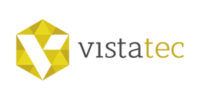With over 40 sessions and more than 80 speakers, this year’s LocWorld53 Malmö marked a significant shift in how the localization industry thinks and operates. Real-world AI applications, cross-functional collaboration, and many more insightful topics were on the table for discussion. The focus was on integration, outcomes, and new definitions of quality. Vistatec’s Emma Hilton was there absorbing the pulse of the event. Here are her top takeaways:
1. AI Is Operational Rather Than Experimental
The age of pilot programs is over. Presentations from top companies emphasized how AI is already embedded into localization workflows through scalable MT pipelines, automated quality evaluations, and training data refinement. AI is becoming essential infrastructure.
That said, the human-in-the-loop element remains critical, especially for curating data, validating outcomes, and protecting brand tone and user experience. The emphasis is shifting from ‚if‘ to ‚how well‘ we integrate AI into day-to-day localization.
2. Quality Is Not Just Accuracy
A recurring theme across sessions was the redefinition of localization quality. In the past, linguistic accuracy was synonymous with quality; now, it is a matter of how content feels, connects, and resonates.
Quality is being reframed as a business outcome. User experience, emotional tone, brand consistency, and even regulatory compliance are now considered key indicators of success. As a result, cross-functional teams (localization, UX, legal, and product) are sharing ownership of quality metrics. In short, good quality is a strategic KPI rather than a translation score.
3. The Localization-First Mindset
It’s no longer acceptable to treat localization as a back-end service. Forward-thinking companies are embedding localization directly into content creation tools, such as Notion and Figma, to facilitate early collaboration across departments.
This “localization-first” mindset is shifting teams from a reactive to a proactive approach. We now see strategic integrations between localization, product design, engineering, and analytics. The ultimate objective is to scale a high-quality product internationally without having to rebuild it multiple times.
4. Humans Are Becoming Cultural Strategists
As AI handles more of the heavy lifting, human roles are evolving. Language professionals are now guiding, editing, and culturally aligning AI-generated content rather than just post-editing raw outputs.
This trend was explored during the interactive panel “The Future of Localization Starts With You”, where industry leaders shared five-minute visions of where the field is heading. Insightful presentations spanned from low-touch AI to high-touch, “luxury” human-crafted experiences.
5. Experimentation Is Fueling Innovation
Several companies are actively testing AI-generated subtitles, monolingual QA, and new AI-assisted quality metrics. These pilots are reshaping long-standing assumptions about what constitutes good localization. Vistatec was proud to discuss VistatecSpeech, its enterprise-grade service designed to help businesses reach global audiences with fast, affordable, and high-quality dubbed content.
Experimentation is accelerating the move towards pragmatic, data-driven decision-making, which is challenging the industry to reimagine standards that have been largely unchanged for decades.
AI is Not the Future of Localization, It’s the Present
LocWorld confirmed what many in the industry already suspected: AI is not the future of localization, it is the present. But without human guidance, strategic oversight, and cultural intelligence, AI can’t deliver the nuance global businesses require.
At Vistatec, we help our clients stay ahead. If you are rethinking your localization workflows, looking to integrate AI responsibly, or aiming for consistent global impact, Vistatec is here to help.
Contact us today to discover more about our comprehensive localization services and AI integration expertise.
About Vistatec
Vistatec delivers expert global content solutions that align precisely with your specific business needs. Our expertise in bespoke language and technology solutions spans multiple industries. We support many of the world’s most iconic brands to optimize their global commercial potential. Vistatec, established in 1997, is one of the world’s leading localization and content services providers, headquartered in Dublin, Ireland, with operations worldwide. Learn more at: www.vistatec.com

